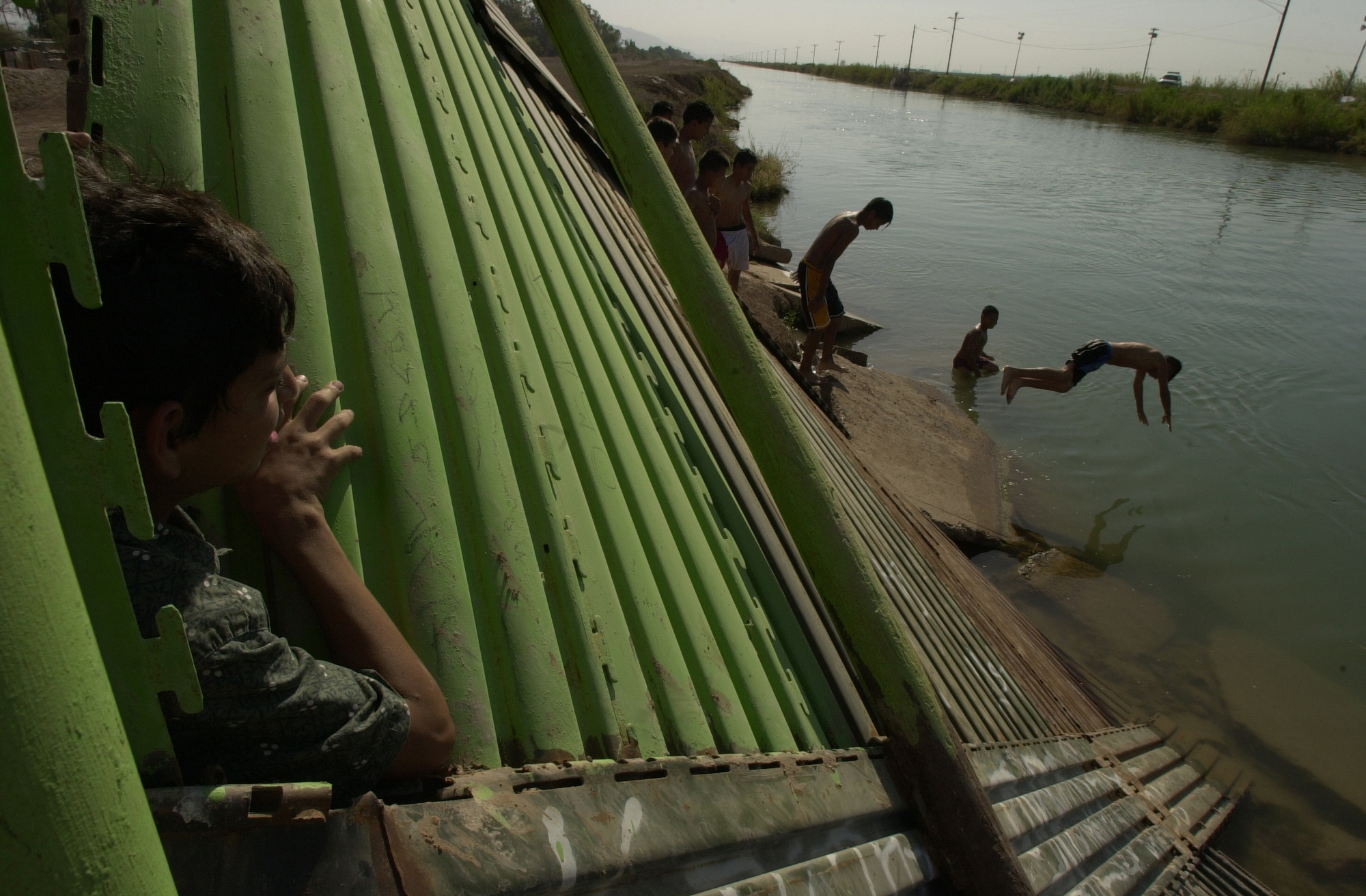
All-American Canal
At the western-most edge of the border fence in Calexico, CA., youths slip through the metal fence on the Mexicali side to cool off in the All-American Canal, technically the U.S., under the watchful eye of Border Patrol agents in a van on the north side.
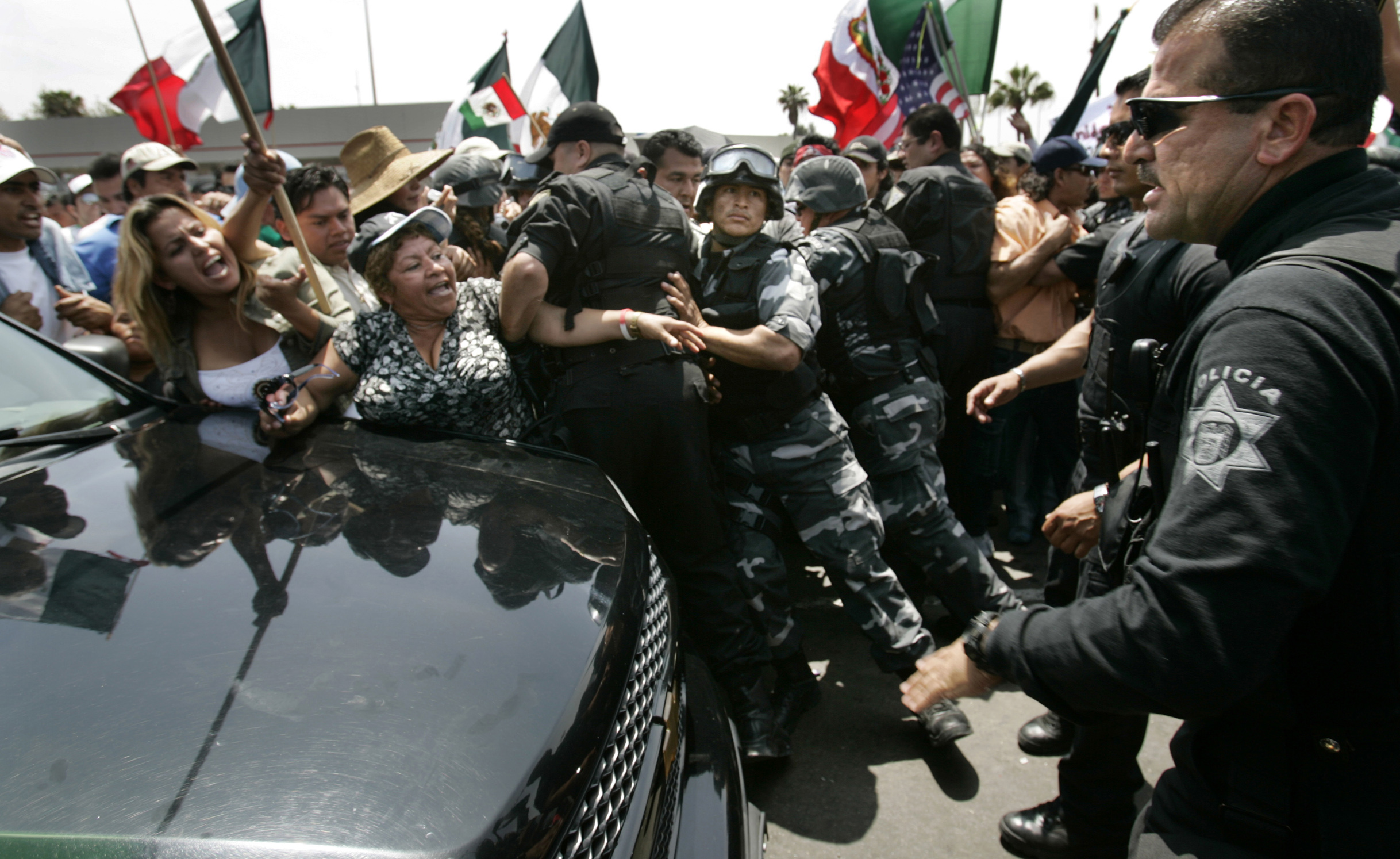
Border Protest
Hundreds of protesters formed a human chain across northbound lanes in Tijuana at the San Ysidro border crossing to stop fellow Mexicans from going to work or shopping in the U.S. for just one day, to demonstrate America's dependence on the Mexican labor force.
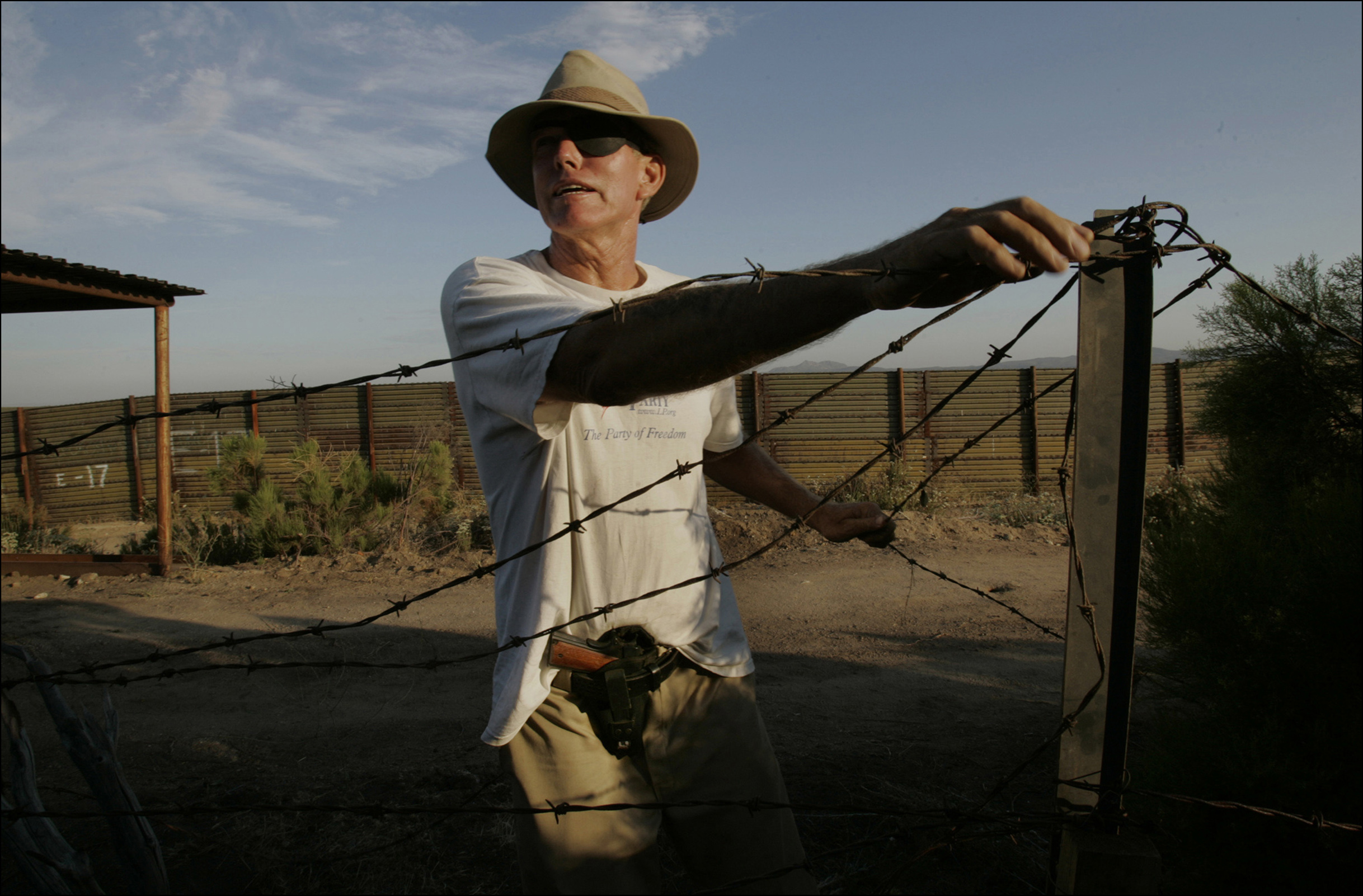
Minutemen Vigil
Along the border in Jacumba, CA., Brit Craig, a Vietnam veteran and member of the Minute Men vigilante group, secures barbed wire around his camp "in case any migrants sneak up on me and try to slit my throat while I'm sleeping." he said.
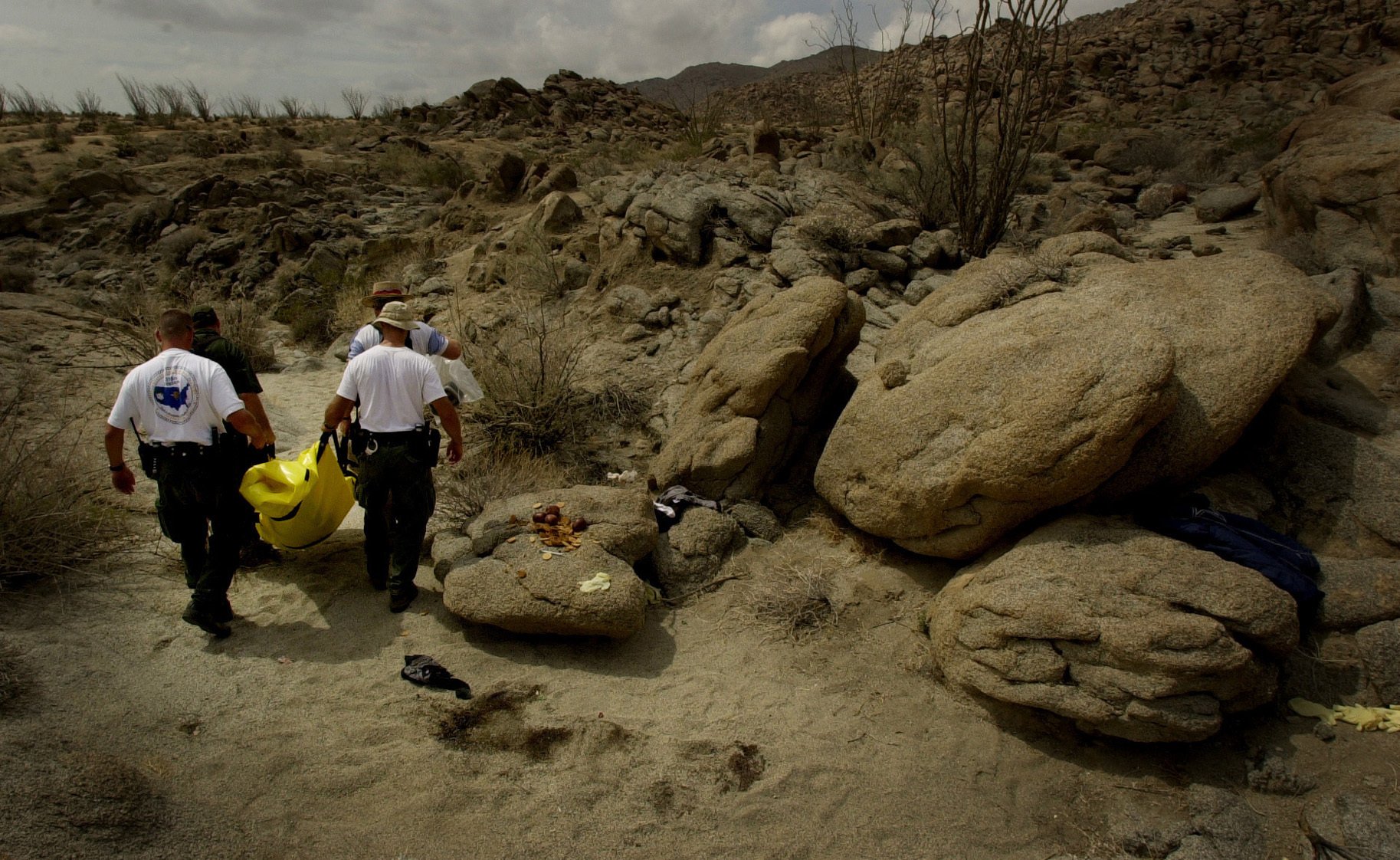
Death in the Desert
The imprint of a body is all that's left of an unidentified female migrant who was discovered in the Davies Canyon area of the desert south of Ocotillo by a helicopter patrol. Imperial County coroner Henry Proo and three Border Patrol agents carry the woman to a waiting van. She wore a wedding ring, but nothing to help identify her so her family could be notified.
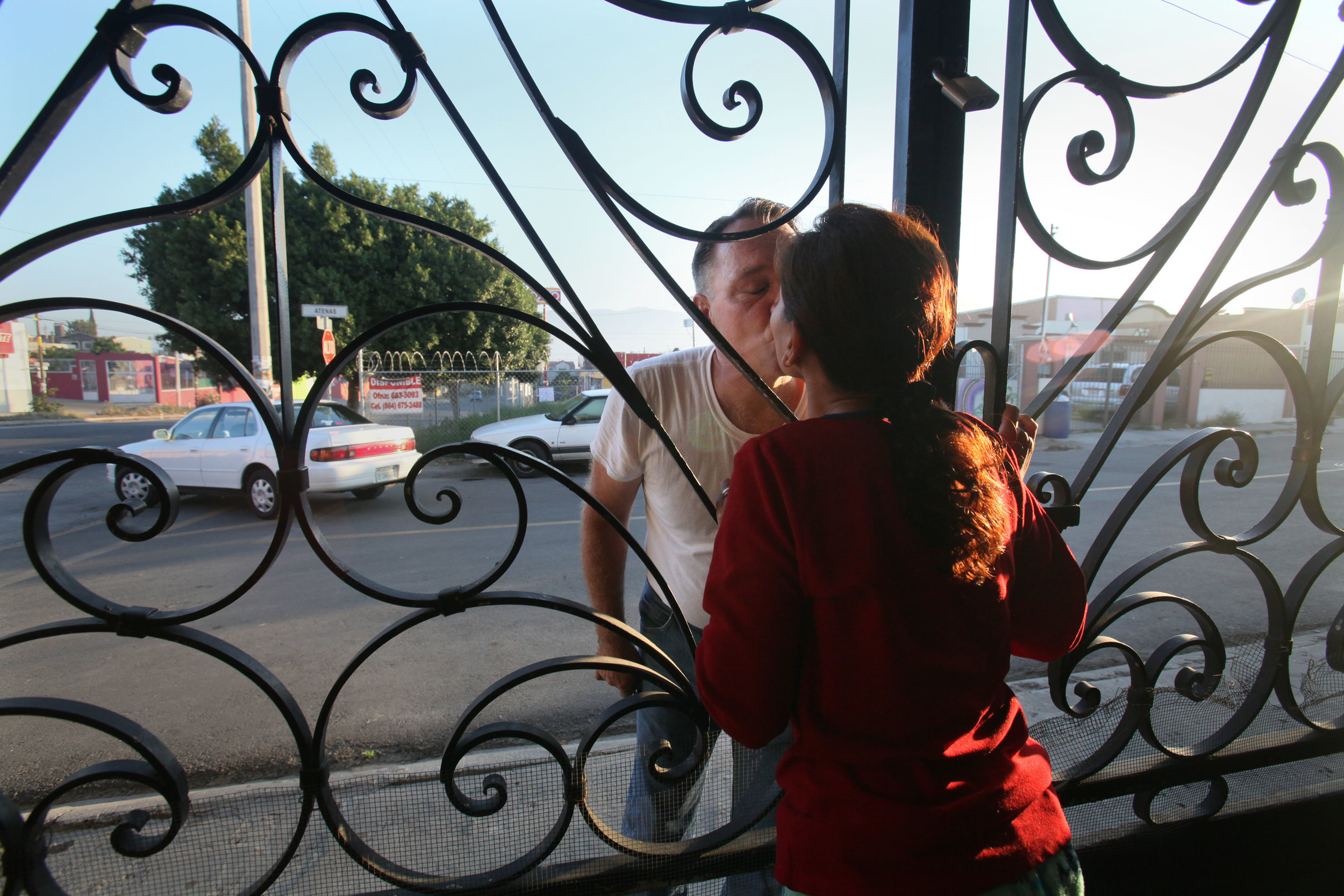
Deported Mom
After spending Friday night in Tijuana, Michael Paulson, a retired U.S. Marine, reluctantly drives out of the garage and comes back to lock the gate and kiss his wife Emma Sanchez goodbye through the gate before heading to work as an auto mechanic in Vista. Their three sons stayed in Tijuana through the weekend to be with their mother. After another year in Tijuana, 11 years total, Sanchez was finally able to return to the U.S. and apply for citizenship.
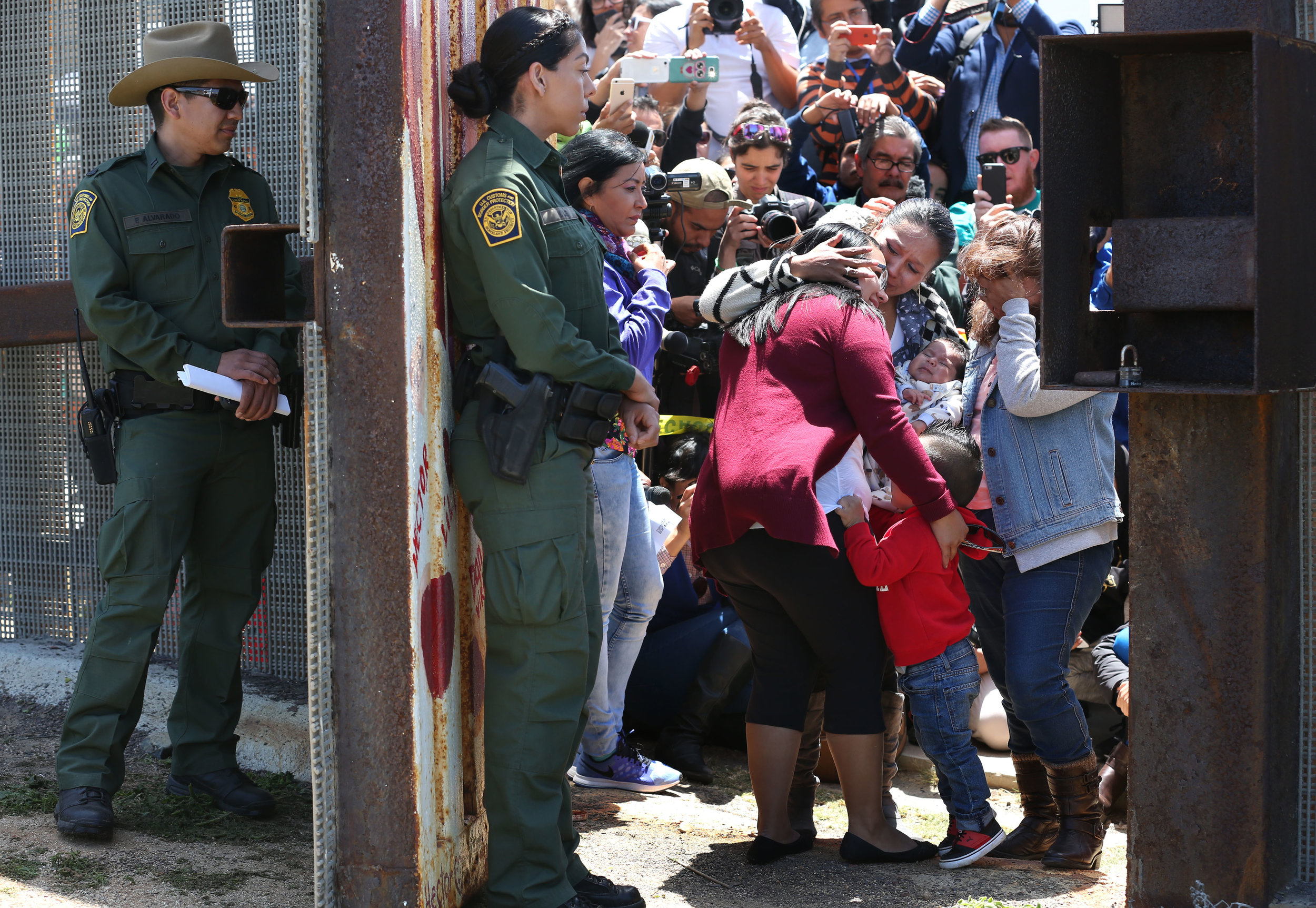
Door of Hope
Border Patrol agents stand by at the Door of Hope as Gabriela Esparza, left, and son Leonel Martinez Esparza, fall into the arms of family members Maria del Carmen Flores, with her infant, and Susanna Carmen Esparza Flores, from the Tijuana side of the wall. This was the first year the gate in Friendship Park near the Pacific Ocean was opened after decades of closure. It was opened annually thereafter on the Day of the Child until new administrators in Border Patrol shut it down.
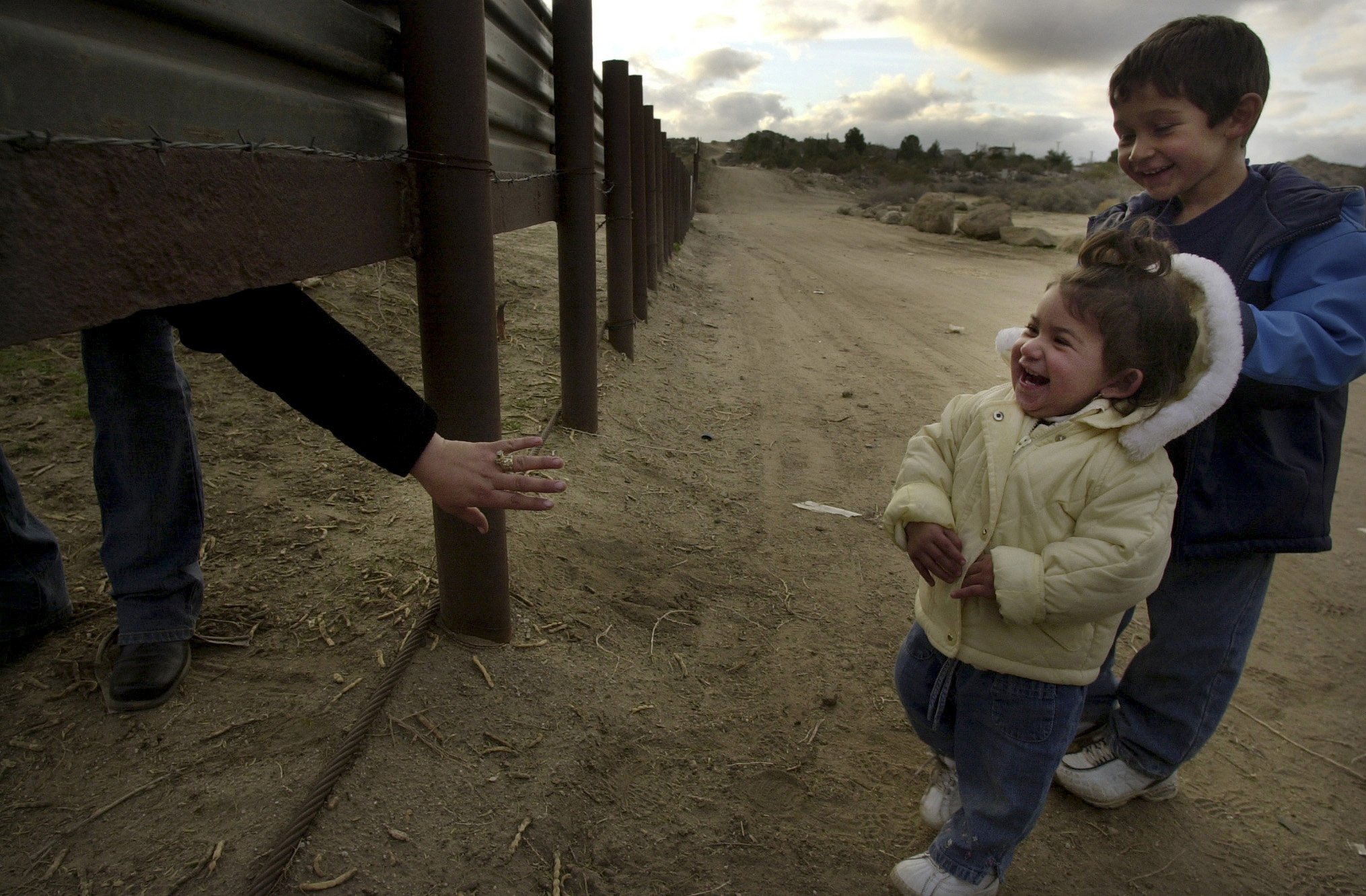
Living on both sides
Jessica Mercado, 1, and brother Fernando Mercado Jr., 4, crawled under the border fence playing keep-away from their mother Norma Mercado, left, not realizing how dangerous their actions were. Not far away, a Border Patrol agent was watching, and came swooping down the hill towards the gathering just as a friend on the U.S. side handed her children back to her over the fence. The Mercados are like many residents living in Jacume, MX., just south of Jacumba, CA. who used to cross fairly freely across the border to do business, visit family or friends, even go to the post office. But after 9/11, security tightened even in this small hamlet. Now people have to drive an hour to Tecate, wait in line to cross, and drive another hour to Jacumba, a commute that used to take five minutes on foot.
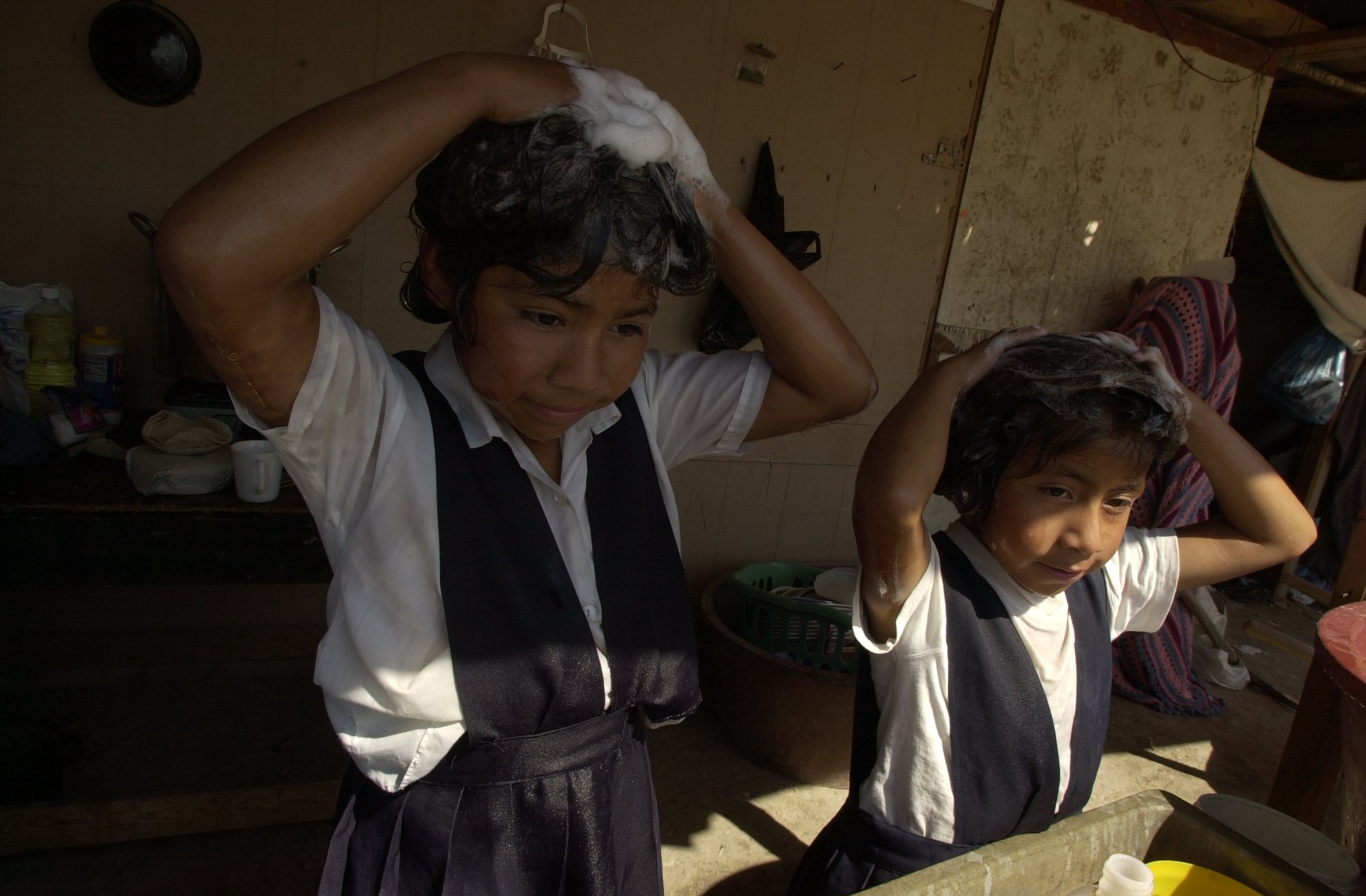
No running water
In the colonia Vista del Valle in eastern Tijuana, school girls wash their hair in an outdoor sink on a sunny afternoon. Like many families here, they buy water from ‘pipas’ or tank trucks, and store the water in 30-gallon drums for all their daily uses.
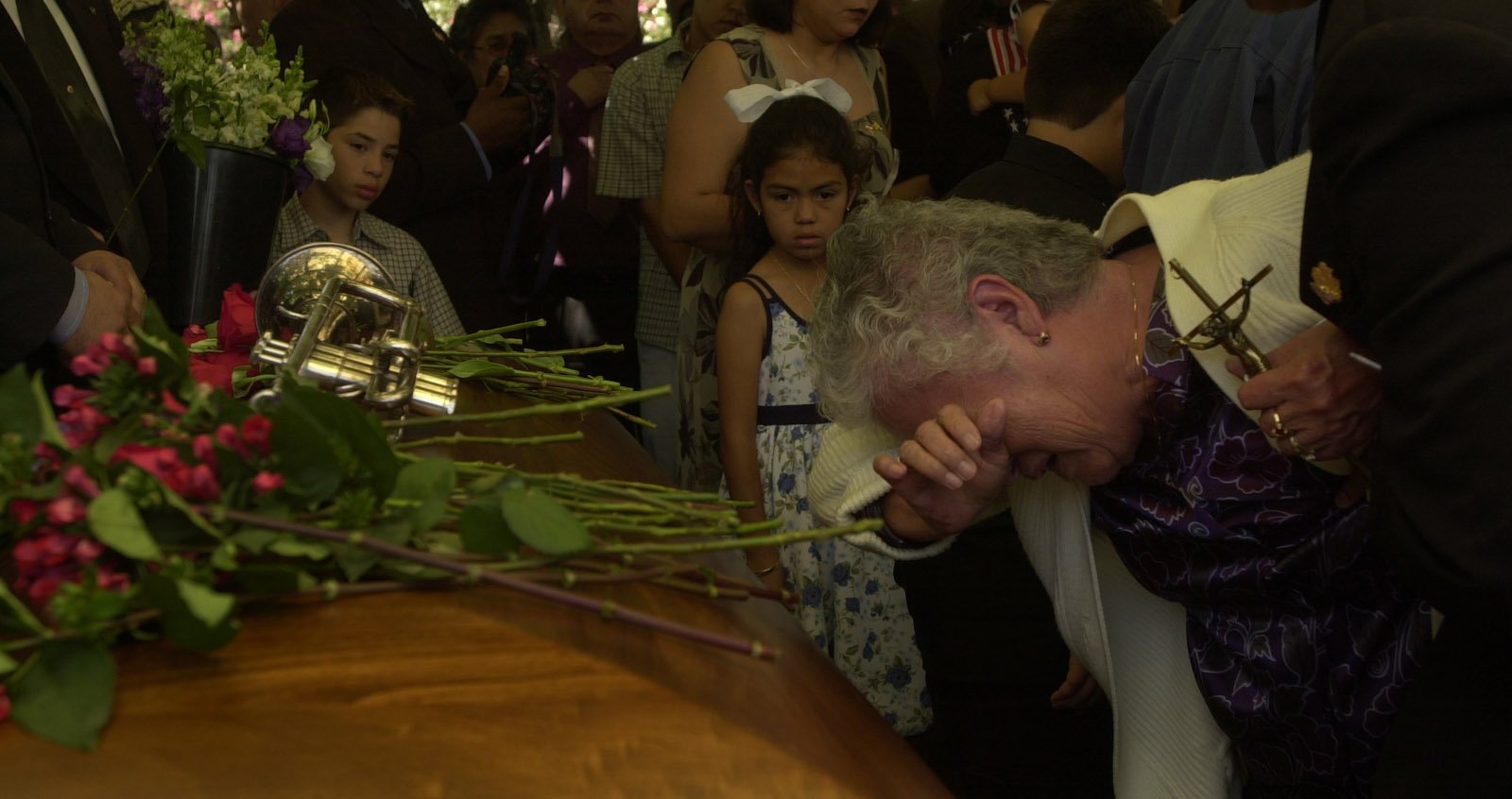
A soldier's funeral
Erik Silva's maternal grandmother Connie Hernandez is helped away from his casket following burial services in Holtville's Terrace Park Cemetery. About 1200 people attended the service for the US military veteran killed in Iraq. He joined the military after becoming a US citizen.
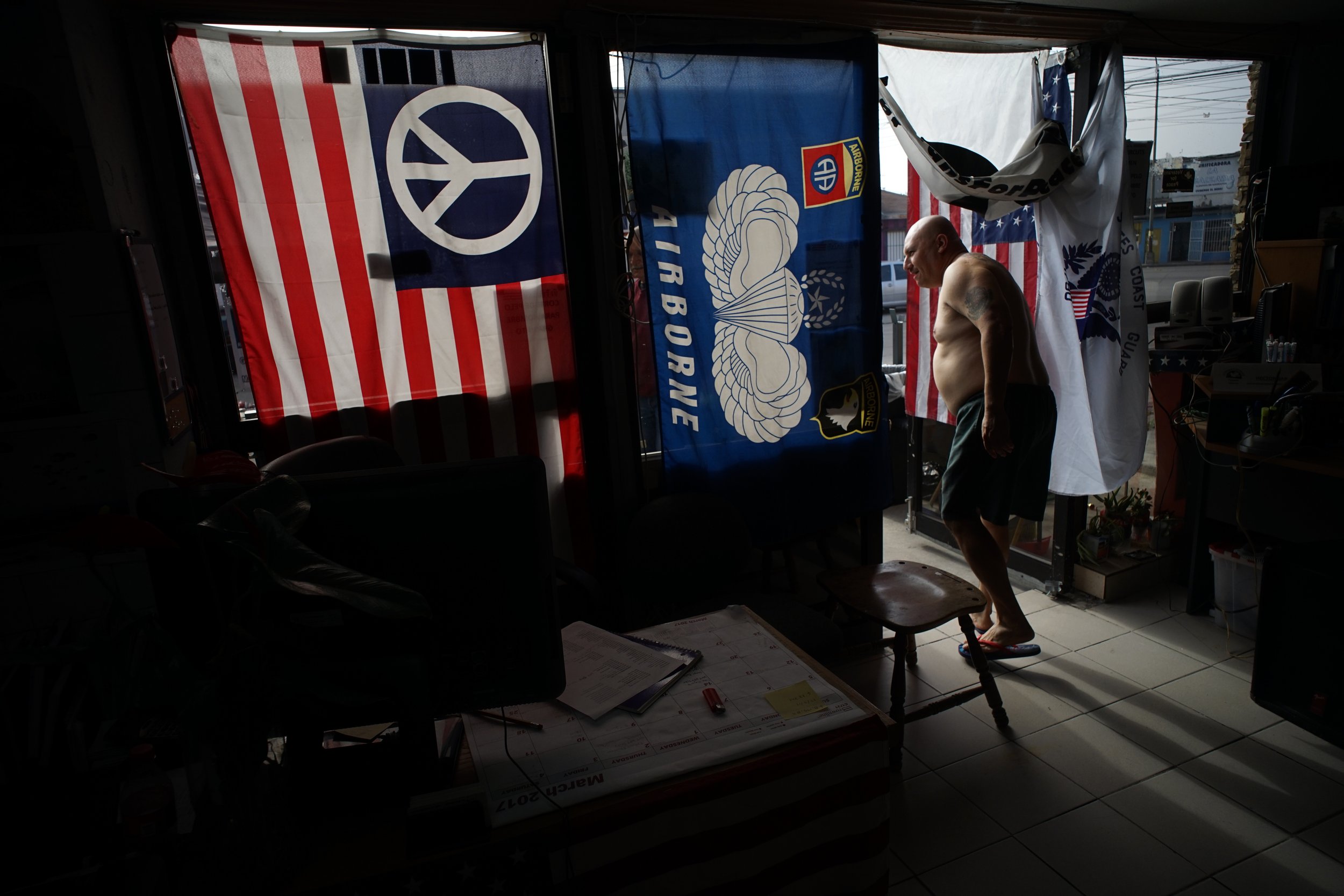
Deported US veterans
Hector Barajas is a U.S. Army veteran who was deported. Barajas was born in Mexico but raised since he was seven in the Los Angeles area. In 1992, he became a lawful permanent resident. After graduating from high school, Barajas enlisted in the army in 1995 and could have applied for naturalization at that time, but army recruiters led him to the mistaken impression that honorable service in the military automatically made him a citizen. After his retirement from the military, as a civilian, following a traffic stop he charged with a crime and deported. He founded the Bunker in Tijuana, a landing pad and sometimes home for other deported veterans. Barajas recently was able to win his fight to regain entry to the US and be with his family.
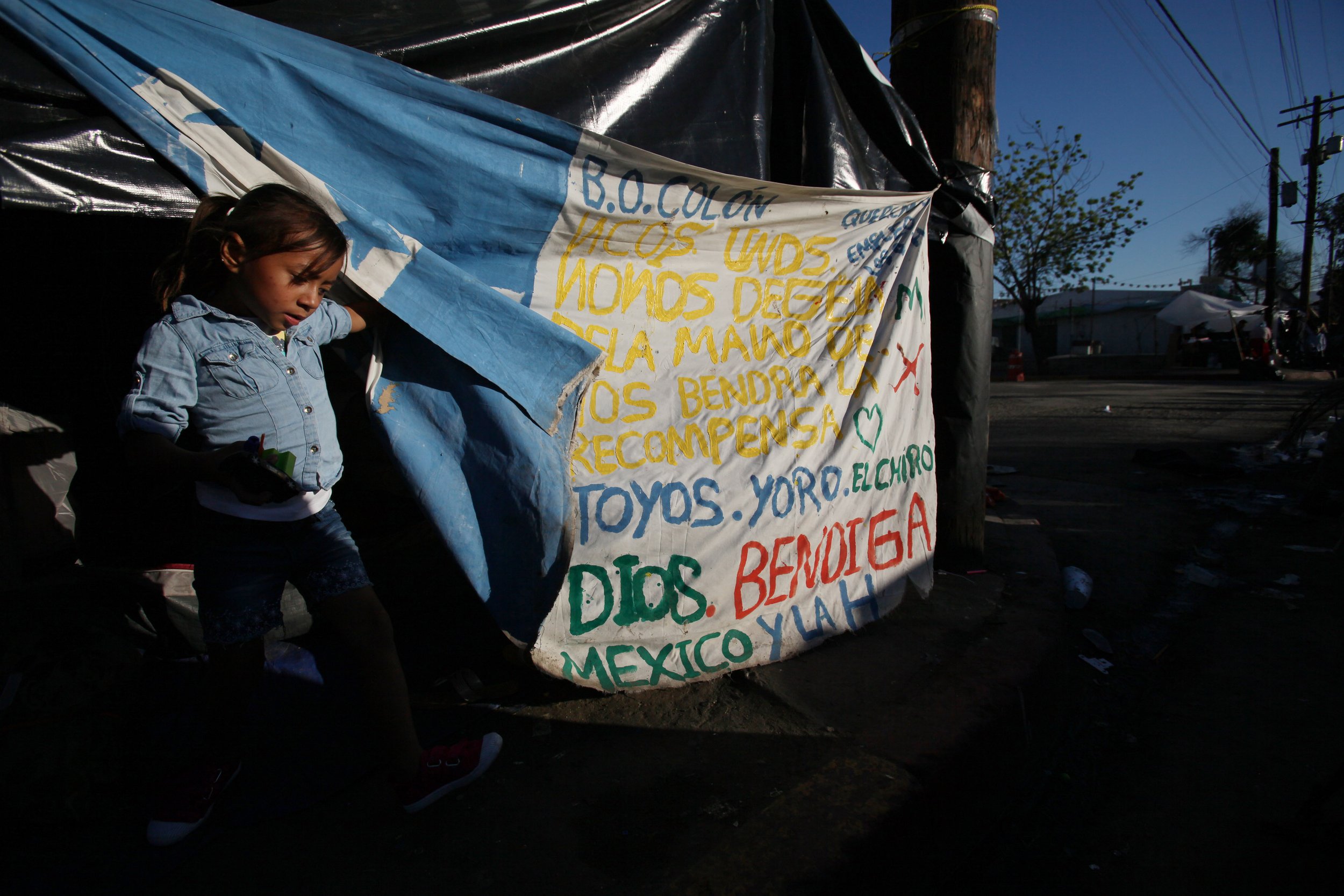
Migrant caravan from Honduras
At the Benito Juarez Sports Complex near downtown Tijuana, Genesis España, 5, walks out from under her family's tent, with a Honduran flag as a sheet, at a street corner among the migrant tents. In Tijuana, children members of the migrant caravan are learning to live in limbo as they move between shelters, settling in as much as possible to create a sense of normalcy, with help from NGOs, counselors and aid organizations.
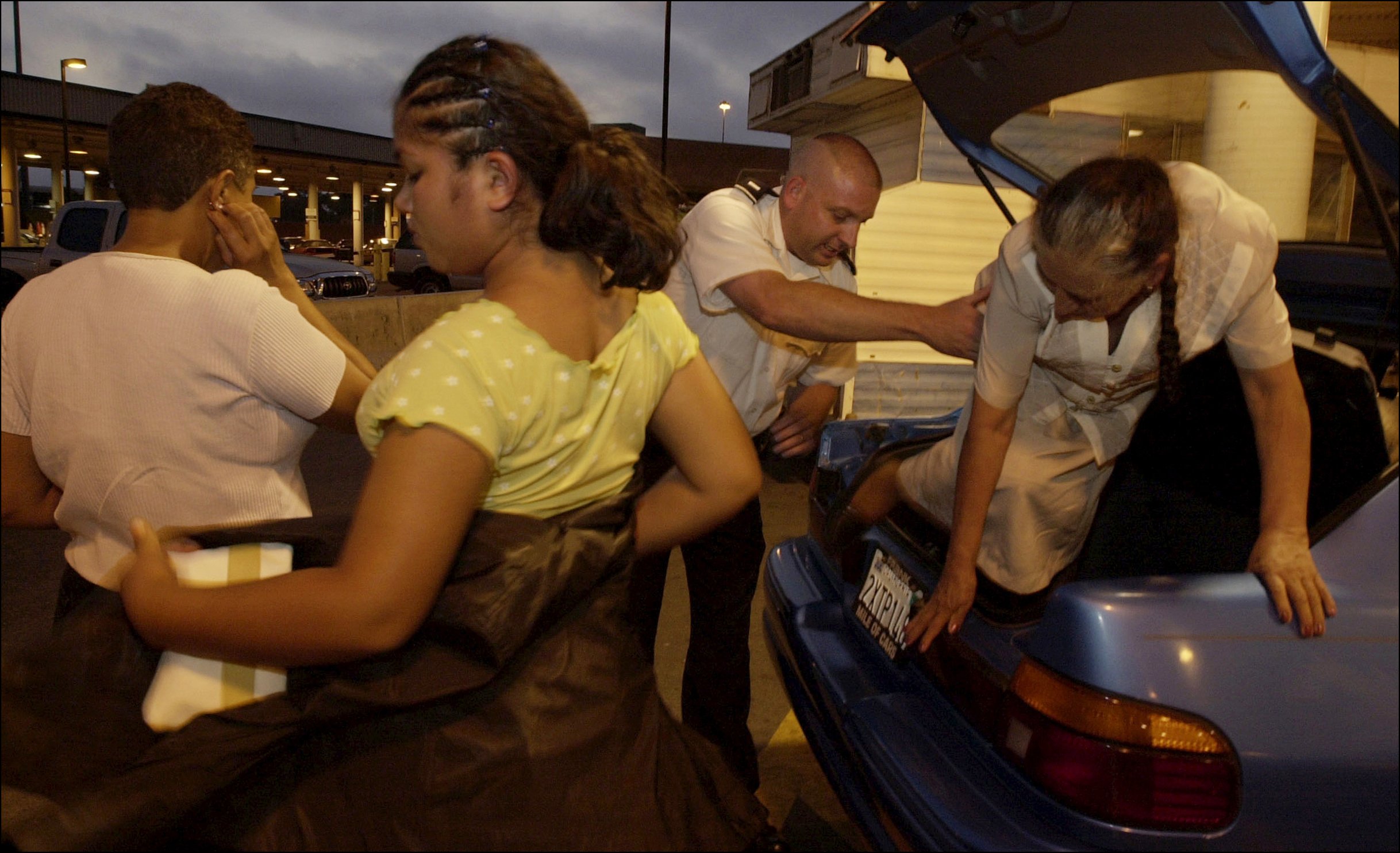
Human smuggling
Sgt. Rob Knox of the INS helps the third of three women out of a trunk at the secondary inspection area of the San Ysidro port of entry. Since Operation Gatekeeper has tightened control of the border fence, more and more people are squeezing themselves into cars to try and enter the U.S. instead of climbing the fence and running over open ground.
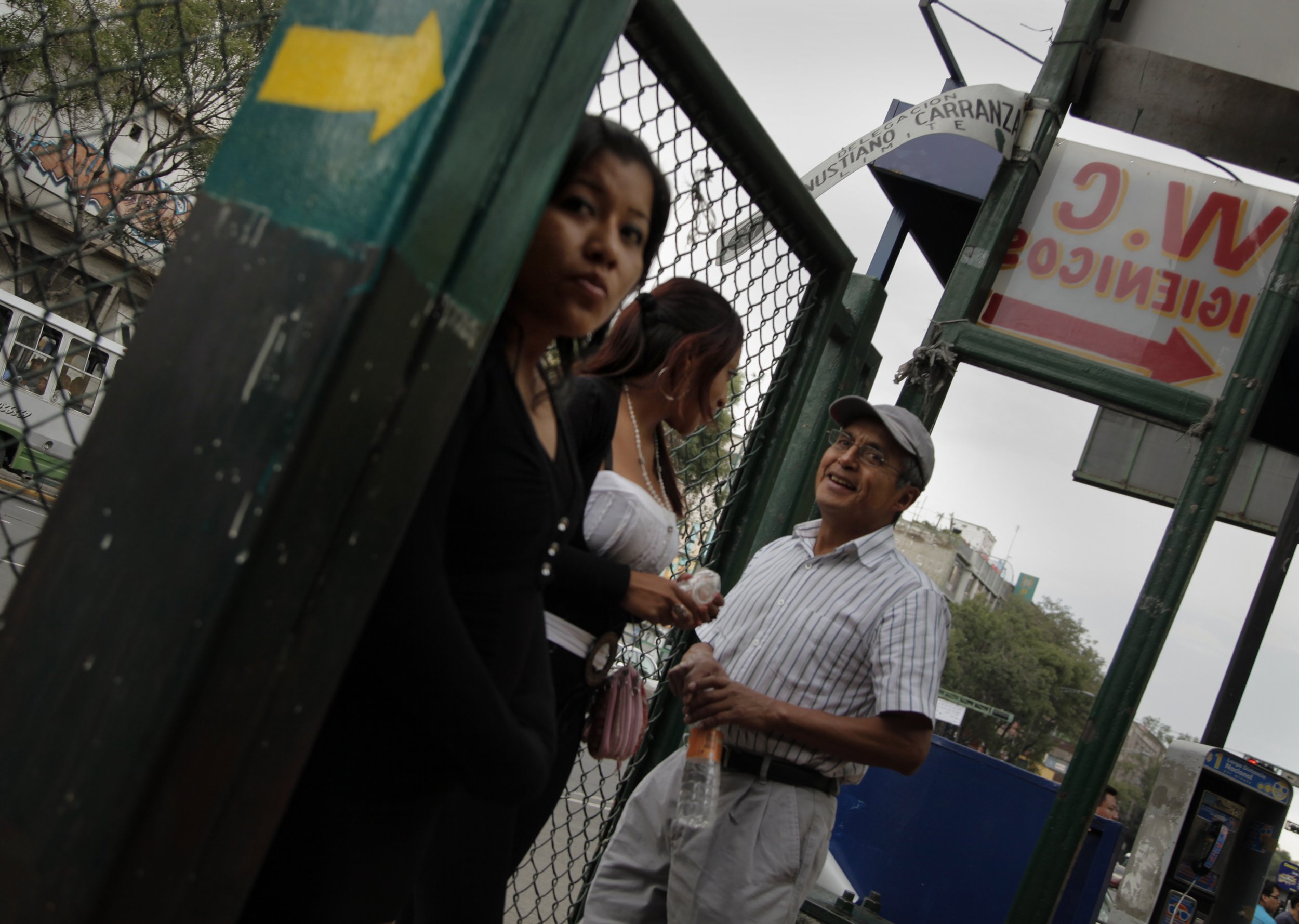
Human sex trafficking
The issue of human trafficking in Mexico and the U.S. is out of control. In Mexico trafficking in people rivals the drug trade. At La Merced, a street market near El Zocalo, young girls offer sex for money they will never see. Many young girls are managed by their ‘boyfriends’ who lured them away from other parts of Mexico to the city for that purpose. See the human trafficking video in videos to learn more.
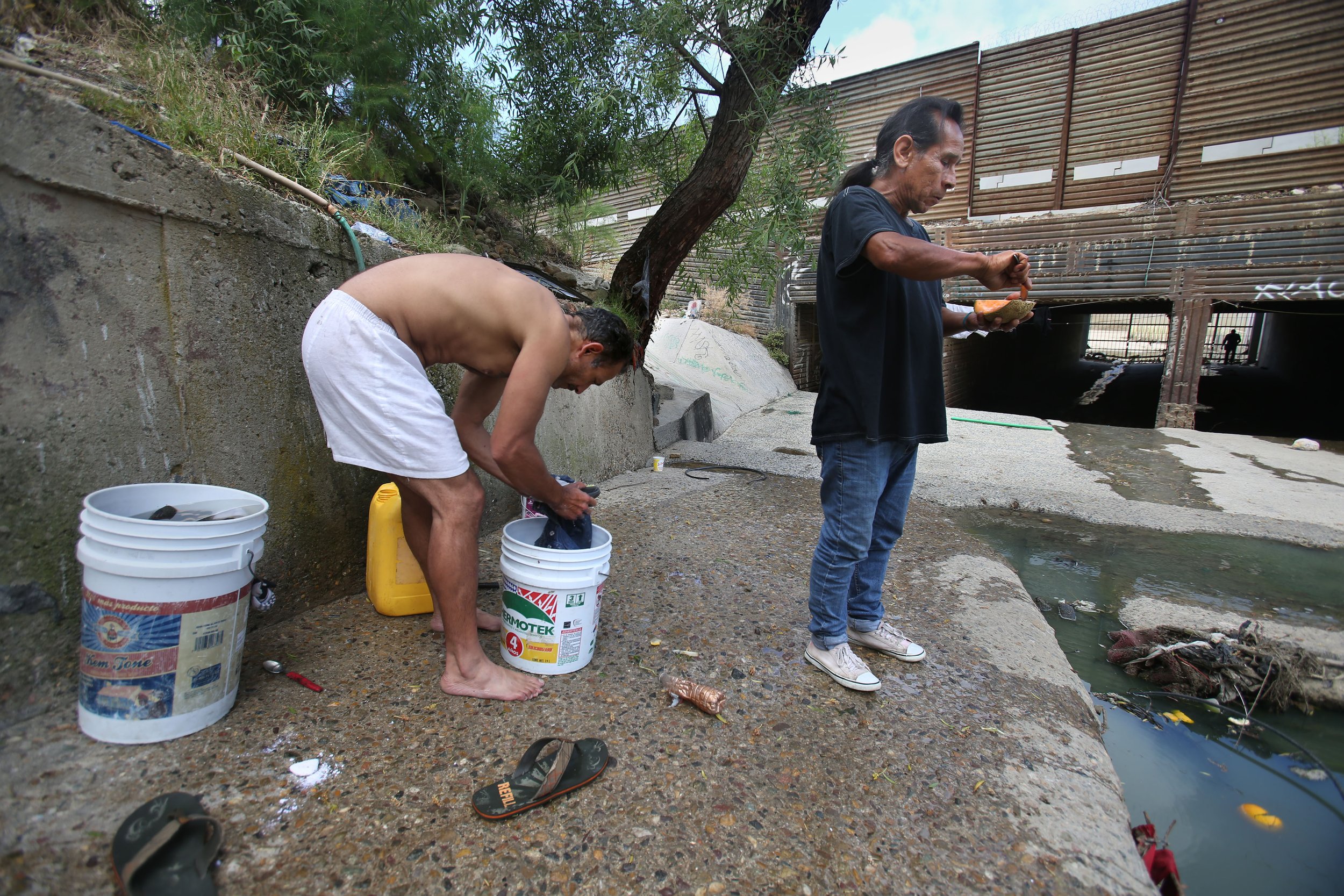
Migrant encampment
Miguel, left, washes clothes while Jimmy Benitez has fruit for breakfast. Many migrants stop and spend the night in this spot where masive stormwater pipes drain from nearby colonias before washing under the border wall into the Tijuana Estuary on the US side. Migrants wash their clothes and rest before trying to jump the fence into the U.S.
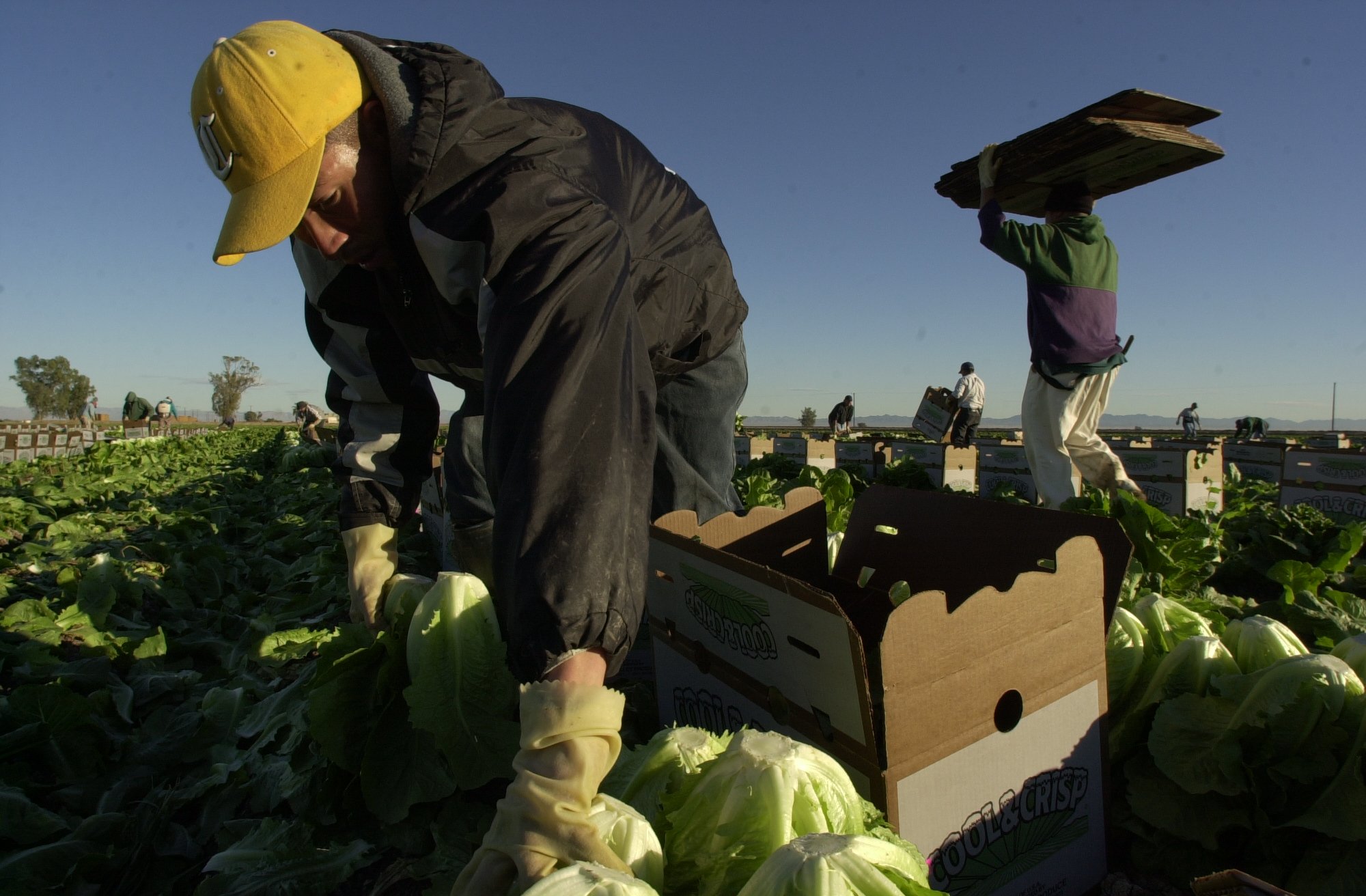
Lettuce harvest
Agricultural workers from Mexicali harvest lettuce in El Centro, north of the border on a chilly morning. Despite the seeming warmth of the desert, temperatures can get below freezing when workers cross the border before dawn to begin work. In the summer, temperatures can surpass 100 degrees.














